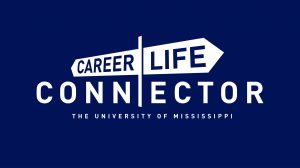 In an effort to improve career-life balance for University of Mississippi employees, the Office of the Provost has created the Career-Life Connector Initiative to help faculty and staff balance professional and personal responsibilities.
In an effort to improve career-life balance for University of Mississippi employees, the Office of the Provost has created the Career-Life Connector Initiative to help faculty and staff balance professional and personal responsibilities.
The initiative includes four career-life navigators who share their experiences of integrating work and personal life with the understanding that individuals have different priorities in their own lives. Navigators guide and direct faculty and staff to multiple resources so they can make informed decisions based on individual situations, from starting and raising a family to caring for a sick partner or aging loved one to managing difficult situations while balancing work.
Faculty and staff members may email careerlife@olemiss.edu or a navigator directly to schedule a meeting.
“We are committed to helping faculty and staff balance the responsibilities in both their professional and personal lives,” Associate Provost Donna Strum said. “Navigators will provide information that employees need to achieve a healthy work-life balance. We are pleased to foster an environment that supports work-life integration.”
The navigators are John Adrian, business manager for the Office of the Provost; Katherine Centellas, an associate professor of anthropology in the Croft Institute for International Studies; Kelly Brown Houston, an administrative coordinator in the Department of History; and Melinda Valliant, an associate professor of nutrition and hospitality management.
“The navigator may serve as a ‘first stop’ for employees in need of direction,” Strum said.
Faculty and staff may not want to go directly to their supervisors to share personal information or ask questions about family caregiving needs or work-life balance, so the navigators allow faculty and staff members to speak with peers and inquire about various work-life situations confidentially.
The navigators attended several training sessions and engaged with leaders across campus to learn about available resources. They also met with people in various units, including Human Resources, the offices of Equal Opportunity and Regulatory Compliance, Vice Chancellor for Diversity and Community Engagement, and the University Ombuds, and the Sarah Isom Center for Women and Gender Studies.
Employers that offer work-life balance are likely to have the competitive edge. The most successful businesses realize that effectively addressing work-life balance issues with their workforce can increase morale and foster commitment, improve employee recruitment and retention, and raise productivity.
“Having a work-life balance leads to lower stress levels, better overall health, and better job satisfaction and performance,” Centellas said. “It also can help address issues proactively. A satisfactory work-life balance – however that is defined by the employee – also can contribute to a more inclusive, respectful and equal campus. This is because how people define and achieve work-live balance will be diverse, but we want to support the paths that are meaningful to each employee.”
The Career-Life Connector Initiative also provides career-life consultants to facilitate recruitment and provide information about work-life integration during the search process, as requested by job candidates. Consultants include Derek Cowherd, senior associate athletics director for academic support; Melissa Dennis, head of research and instruction services at the J.D. Williams Library; Kathy Knight, associate professor of nutrition and hospitality management; and Shawnboda Mead, director of the Center for Inclusion and Cross Cultural Engagement.
Search committee chairs can email careerlifesearch@olemiss.edu to request assistance with the interview process.
For more information about navigators, consultants and the UM Career-Life Connector Initiative, visit careerlife.olemiss.edu.